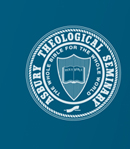Abstract
While theological definitions of holiness incorporate purity terminology among several metaphors, the challenges resident in using this language may well impede opportunities of engaging difference and reconciliation. Wesleyans need a “Plain Account” of Christian purity to guide both ecclesial discussions that stress not only strengths, but also limits, in purity thinking. Using an example involving the Church of the Nazarene and Pentecostalism, the writing reveals how purity thinking risks creating “Berlin walls” when engaging differences. The analysis argues that a moral fear of degradation, rather than an acknowledgment of difference, often pushes purity thinkers to oppose certain issues.
DOI
10.7252/Journal.01.2024S.03
Recommended Citation
Blevins, Dean G. and Gregg, Marie
(2024)
"A Plain Account of Christian Purity: Berlin Walls,"
The Asbury Journal:
Vol. 79:
No.
1, p. 29-51.
Available at:
https://place.asburyseminary.edu/asburyjournal/vol79/iss1/4
Included in
Biblical Studies Commons, Christian Denominations and Sects Commons, Missions and World Christianity Commons

